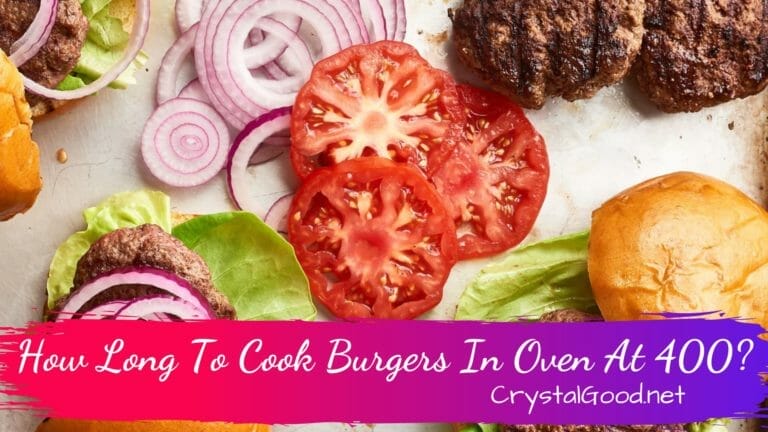Calorie intake is an important factor in maintaining a healthy lifestyle. Knowing how many calories you need each day can help you make informed decisions about your diet and exercise habits. This article will provide an overview of how many calories you need, as well as tips for calculating your own calorie needs. We will also discuss the importance of balancing your calorie intake with physical activity. By the end of this article, you will have a better understanding of how many calories you need to maintain a healthy lifestyle.
How Many Calories Do You Need to Maintain a Healthy Weight?
Contents
- 1 How Many Calories Do You Need to Maintain a Healthy Weight?
- 2 How to Calculate Your Calorie Needs for Weight Loss
- 3 What Are the Recommended Daily Calorie Intake Levels?
- 4 How to Make Sure You’re Eating Enough Calories
- 5 What Are the Benefits of Eating the Right Amount of Calories?
- 6 How to Create a Calorie Deficit for Weight Loss
- 7 What Are the Best Sources of Healthy Calories?
- 8 How to Balance Macronutrients for Optimal Calorie Intake
- 9 Conclusion: How Many Calories Do You Need
- 10 FAQs
Maintaining a healthy weight is an important part of living a healthy lifestyle. But how many calories do you need to consume to maintain a healthy weight? The answer depends on a variety of factors, including your age, gender, activity level, and body size.
For adults, the average daily calorie intake to maintain a healthy weight is between 1,600 and 2,400 calories per day. However, this number can vary depending on your individual needs. For example, if you are an active adult, you may need to consume more calories than someone who is less active.
If you are trying to lose weight, you may need to consume fewer calories than the average. The best way to determine how many calories you need to maintain a healthy weight is to talk to your doctor or a registered dietitian. They can help you create a personalized plan that takes into account your individual needs.
No matter what your calorie needs are, it’s important to make sure you are eating a balanced diet that includes plenty of fruits, vegetables, whole grains, and lean proteins. Eating a healthy diet can help you maintain a healthy weight and provide your body with the nutrients it needs to stay healthy.
How to Calculate Your Calorie Needs for Weight Loss
Are you looking to lose weight? Congratulations on taking the first step towards a healthier lifestyle! To get started, you’ll need to calculate your calorie needs for weight loss. Don’t worry, it’s easier than it sounds! Here’s a step-by-step guide to help you get started.
Step 1:
Calculate Your Basal Metabolic Rate (BMR). Your BMR is the number of calories your body needs to maintain its current weight. To calculate your BMR, use the Harris-Benedict equation:
- For men: BMR = 66 + (6.2 x weight in pounds) + (12.7 x height in inches) – (6.76 x age in years)
- For women: BMR = 655 + (4.35 x weight in pounds) + (4.7 x height in inches) – (4.7 x age in years)
Step 2:
Calculate Your Activity Level. Your activity level is the number of calories you burn through physical activity. To calculate your activity level, multiply your BMR by the following numbers:
- Sedentary (little or no exercise): BMR x 1.2
- Lightly active (light exercise/sports 1-3 days/week): BMR x 1.375
- Moderately active (moderate exercise/sports 3-5 days/week): BMR x 1.55
- Very active (hard exercise/sports 6-7 days a week): BMR x 1.725
- Extremely active (very hard exercise/sports & physical job or 2x training): BMR x 1.9
Step 3:
Calculate Your Calorie Needs for Weight Loss. To lose weight, you need to create a calorie deficit. This means you need to consume fewer calories than you burn. To calculate your calorie needs for weight loss, subtract 500-1000 calories from your activity level. This will give you an estimate of how many calories you need to consume each day to lose weight.
For example, if your activity level is 2,000 calories, you would need to consume 1,500-2,000 calories per day to lose weight.
Now that you know how to calculate your calorie needs for weight loss, you can start planning your meals and snacks. Remember to focus on eating healthy, whole foods and to stay hydrated. Good luck on your weight loss journey!
What Are the Recommended Daily Calorie Intake Levels?
Are you looking to make sure you’re getting the right amount of calories each day? You’ve come to the right place! Knowing your recommended daily calorie intake is an important part of maintaining a healthy lifestyle.
The amount of calories you need each day depends on a few factors, such as your age, gender, and activity level. Generally speaking, the average adult needs between 1,600 and 2,400 calories per day. However, if you’re more active, you may need more calories.
For men, the recommended daily calorie intake is 2,400 to 3,000 calories. For women, it’s 1,800 to 2,400 calories. If you’re an older adult, you may need fewer calories.
It’s important to note that these are just general guidelines. Everyone’s calorie needs are different, so it’s best to talk to your doctor or a nutritionist to get a more personalized recommendation.
No matter what your calorie needs are, it’s important to make sure you’re getting the right balance of nutrients. Eating a variety of healthy foods, such as fruits, vegetables, whole grains, lean proteins, and healthy fats, is key to staying healthy.
By following these guidelines, you can make sure you’re getting the right amount of calories each day and staying healthy!
How to Make Sure You’re Eating Enough Calories
Are you worried that you’re not eating enough calories? Don’t worry, it’s easy to make sure you’re getting the right amount of calories for your body! Here are some tips to help you make sure you’re eating enough calories:
1. Track your calorie intake. Keeping track of the calories you eat each day is a great way to make sure you’re getting enough. Use an app or a food journal to track your calorie intake and make sure you’re eating enough.
2. Eat nutrient-dense foods. Eating nutrient-dense foods like fruits, vegetables, lean proteins, and whole grains will help you get the most out of your calories. These foods are packed with vitamins, minerals, and other essential nutrients that your body needs.
3. Eat regularly. Eating regular meals and snacks throughout the day will help you stay energized and make sure you’re getting enough calories. Try to eat something every 3-4 hours to keep your energy levels up.
4. Drink plenty of water. Staying hydrated is important for your overall health, and it can also help you feel fuller for longer. Make sure you’re drinking enough water throughout the day to stay hydrated and help you feel full.
Following these tips will help you make sure you’re eating enough calories and getting the nutrients your body needs. Eating enough calories is important for your health and wellbeing, so make sure you’re taking the time to track your calorie intake and eat nutrient-dense foods.
What Are the Benefits of Eating the Right Amount of Calories?
Eating the right amount of calories is essential for maintaining a healthy lifestyle. Eating the right amount of calories can help you maintain a healthy weight, reduce your risk of chronic diseases, and provide you with the energy you need to stay active. Here are some of the benefits of eating the right amount of calories:
1. Maintaining a Healthy Weight: Eating the right amount of calories can help you maintain a healthy weight. Eating too many calories can lead to weight gain, while eating too few can lead to weight loss. Eating the right amount of calories can help you maintain a healthy weight and reduce your risk of obesity-related health problems.
2. Reducing Your Risk of Chronic Diseases: Eating the right amount of calories can help reduce your risk of chronic diseases, such as heart disease, diabetes, and certain types of cancer. Eating too many calories can increase your risk of developing these diseases, while eating the right amount can help reduce your risk.
3. Providing Energy: Eating the right amount of calories can provide you with the energy you need to stay active and productive throughout the day. Eating too few calories can lead to fatigue and lack of energy, while eating too many can lead to weight gain and other health problems.
Eating the right amount of calories is essential for maintaining a healthy lifestyle. Eating the right amount of calories can help you maintain a healthy weight, reduce your risk of chronic diseases, and provide you with the energy you need to stay active. So, make sure to eat the right amount of calories to enjoy all the benefits!
How to Create a Calorie Deficit for Weight Loss
If you’re looking to lose weight, creating a calorie deficit is key! A calorie deficit is when you burn more calories than you consume. This can be achieved by eating fewer calories, increasing physical activity, or a combination of both. Here are some tips to help you create a calorie deficit for weight loss:
1. Track your calories. Keeping track of what you eat is a great way to ensure you’re creating a calorie deficit. Use a food diary or an app to track your daily calorie intake.
2. Eat nutrient-dense foods. Eating nutrient-dense foods like fruits, vegetables, lean proteins, and whole grains will help you feel fuller longer and provide your body with the nutrients it needs.
3. Increase your physical activity. Incorporating more physical activity into your daily routine is a great way to create a calorie deficit. Aim for at least 30 minutes of moderate-intensity exercise per day.
4. Cut back on unhealthy foods. Eating unhealthy foods like processed snacks and sugary drinks can add up quickly and can make it difficult to create a calorie deficit. Try to limit these foods as much as possible.
Creating a calorie deficit is an important part of any weight loss plan. With these tips, you’ll be well on your way to achieving your weight loss goals!
What Are the Best Sources of Healthy Calories?
When it comes to healthy eating, it’s important to make sure you’re getting enough calories. But not all calories are created equal! Here are some of the best sources of healthy calories:
1. Fruits and Vegetables: Fruits and vegetables are packed with vitamins, minerals, and fiber, and they are low in calories. They are also a great source of antioxidants, which can help protect your body from disease.
2. Whole Grains: Whole grains are a great source of complex carbohydrates, which provide energy and help keep you full. They are also high in fiber, which can help lower cholesterol and keep your digestive system healthy.
3. Lean Proteins: Lean proteins such as chicken, fish, and beans are a great source of healthy calories. They are also high in essential amino acids, which are important for muscle growth and repair.
4. Healthy Fats: Healthy fats such as olive oil, avocados, and nuts are a great source of healthy calories. They are also high in monounsaturated and polyunsaturated fats, which can help reduce cholesterol levels and improve heart health.
By including these sources of healthy calories in your diet, you can make sure you’re getting the energy you need without sacrificing your health.
How to Balance Macronutrients for Optimal Calorie Intake
Balancing macronutrients is an important part of achieving optimal calorie intake. Macronutrients are the three main types of nutrients that provide energy to the body: carbohydrates, proteins, and fats. Each of these macronutrients has a different role in providing energy and should be balanced in order to achieve optimal calorie intake.
Carbohydrates are the body’s main source of energy and should make up the majority of your calorie intake. They are found in foods such as grains, fruits, vegetables, and legumes. Aim to get 45-65% of your daily calories from carbohydrates.
Proteins are important for building and repairing muscle and should make up 10-35% of your daily calorie intake. They are found in foods such as meat, fish, eggs, dairy, and legumes.
Fats are essential for providing energy and should make up 20-35% of your daily calorie intake. They are found in foods such as nuts, seeds, avocados, and oils.
By balancing your macronutrients, you can ensure that you are getting the right amount of energy from each type of nutrient. This will help you to achieve optimal calorie intake and maintain a healthy weight. So, don’t forget to include a variety of carbohydrates, proteins, and fats in your diet!
Conclusion: How Many Calories Do You Need
In conclusion, the amount of calories you need depends on a variety of factors, including your age, gender, activity level, and goals. It is important to understand your individual needs and to consult with a healthcare professional to determine the best calorie intake for you. Eating a balanced diet and engaging in regular physical activity can help you reach your goals and maintain a healthy lifestyle.
FAQs
Q: How many calories do I need to maintain my current weight?
A: The number of calories you need to maintain your current weight depends on your age, gender, activity level, and body composition. Generally, an adult male needs 2,500-3,000 calories per day and an adult female needs 2,000-2,500 calories per day.
Q: How many calories do I need to lose weight?
A: To lose weight, you need to create a calorie deficit. This means that you need to consume fewer calories than you burn. The amount of calories you need to consume to create a calorie deficit depends on your age, gender, activity level, and body composition. Generally, an adult male needs 1,800-2,200 calories per day and an adult female needs 1,400-1,800 calories per day.
Q: How many calories do I need to gain weight?
A: To gain weight, you need to create a calorie surplus. This means that you need to consume more calories than you burn. The amount of calories you need to consume to create a calorie surplus depends on your age, gender, activity level, and body composition. Generally, an adult male needs 3,000-3,500 calories per day and an adult female needs 2,500-3,000 calories per day.
Q: How many calories do I need if I’m pregnant?
A: If you are pregnant, you need to consume more calories than you would normally need. The amount of calories you need to consume depends on your age, gender, activity level, and body composition. Generally, an adult female needs 2,500-3,000 calories per day during pregnancy.
Q: How many calories do I need if I’m breastfeeding?
A: If you are breastfeeding, you need to consume more calories than you would normally need. The amount of calories you need to consume depends on your age, gender, activity level, and body composition. Generally, an adult female needs 2,500-3,000 calories per day while breastfeeding.
Q: How many calories do I need if I’m an athlete?
A: If you are an athlete, you need to consume more calories than you would normally need. The amount of calories you need to consume depends on your age, gender, activity level, and body composition. Generally, an adult male needs 3,000-4,000 calories per day and an adult female needs 2,500-3,500 calories per day.
Q: How many calories do I need if I’m a child?
A: If you are a child, the amount of calories you need to consume depends on your age, gender, activity level, and body composition. Generally, a child needs 1,000-2,000 calories per day.
Q: How many calories do I need if I’m elderly?
A: If you are elderly, the amount of calories you need to consume depends on your age, gender, activity level, and body composition. Generally, an elderly person needs 1,600-2,400 calories per day.














